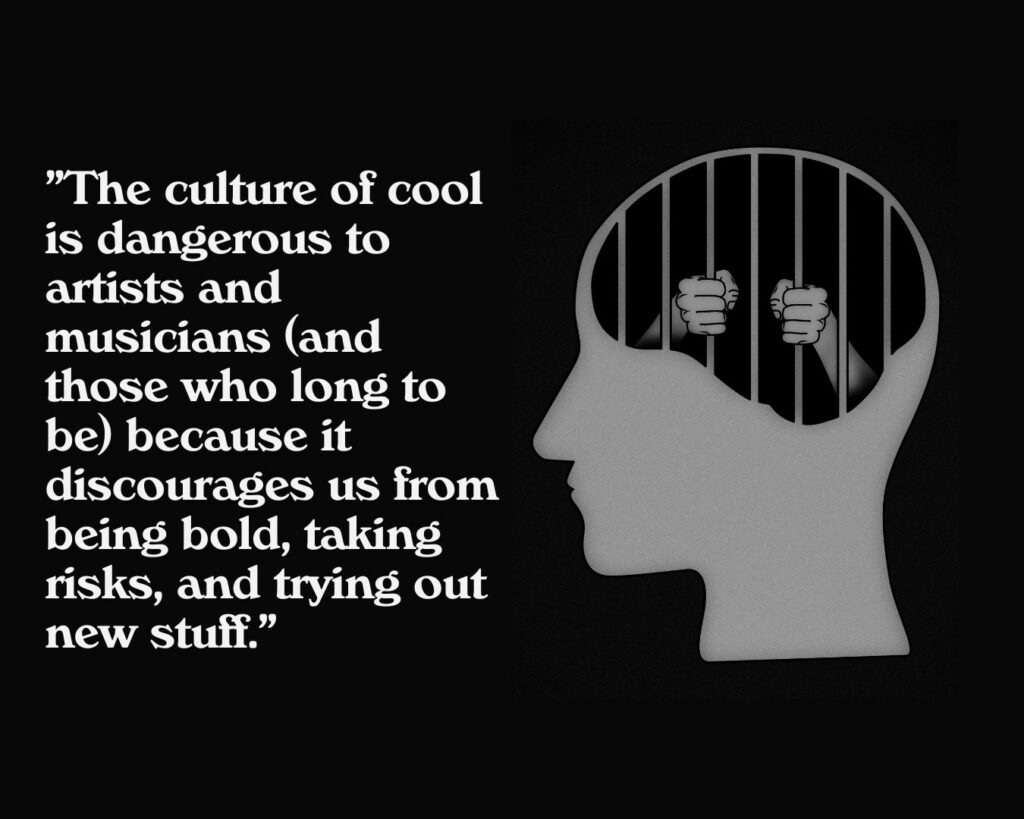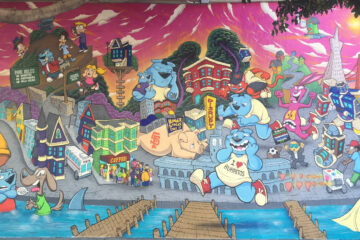How an obsession with being “cool” makes us creatively powerless
This article is not a scholarly look at “cool.” As an active musician and a personal coach to creatives, I have a very different concern: how the obsession with cool makes us creatively impotent. And more importantly, what can we do to feel our joy again.
Much has been said about the origins of cool. And much has been noted about its rising status in how society organizes itself. But unfortunately, the concept of “cool,” which initially started off as an expression of deep reverence in Black American jazz culture, was eventually (like all good things) absorbed by the mainstream. Today, it has become largely unrecognizable compared to its original cultural meaning.
So, how does striving to be cool make us creatively “blah”?
As the Mac Daddy shame researcher Brené Brown states in The Power of Vulnerability, “the need to ‘be cool’ is an emotional straight jacket. It keeps us from moving, growing, stretching, and feeling free.”
So here’s a story. A few years ago, I traveled down to LA to support my friend’s band on tour. After putting out a truly fantastic record, the band enjoyed some upper echelon indie-level success. However, one of the most impressive things about this band was their lives shows. I mean, their performances were unhinged.
As I stood off stage to watch their set, I remembered watching the faces of the audience goers. The expressions ranged from gleeful smiles to total elation. Folks were bobbing their heads and generally having a good ass time by the looks of it. Then, after a 3 song intro montage, the band paused. At this point in their set, the crowd usually erupted into maniac-level applause. But that night, the reaction was quite different. At this venue, the crowd was silent. I remember for a nano-second feeling queasy at the awkward reticence. But then I noticed something. I saw that groups of friends in the audience started eyeing one another. Then, one person in the group (usually the best dressed or most conventionally attractive in the crew) would start clapping. Then, these “lesser” friends would start clapping as if on cue.
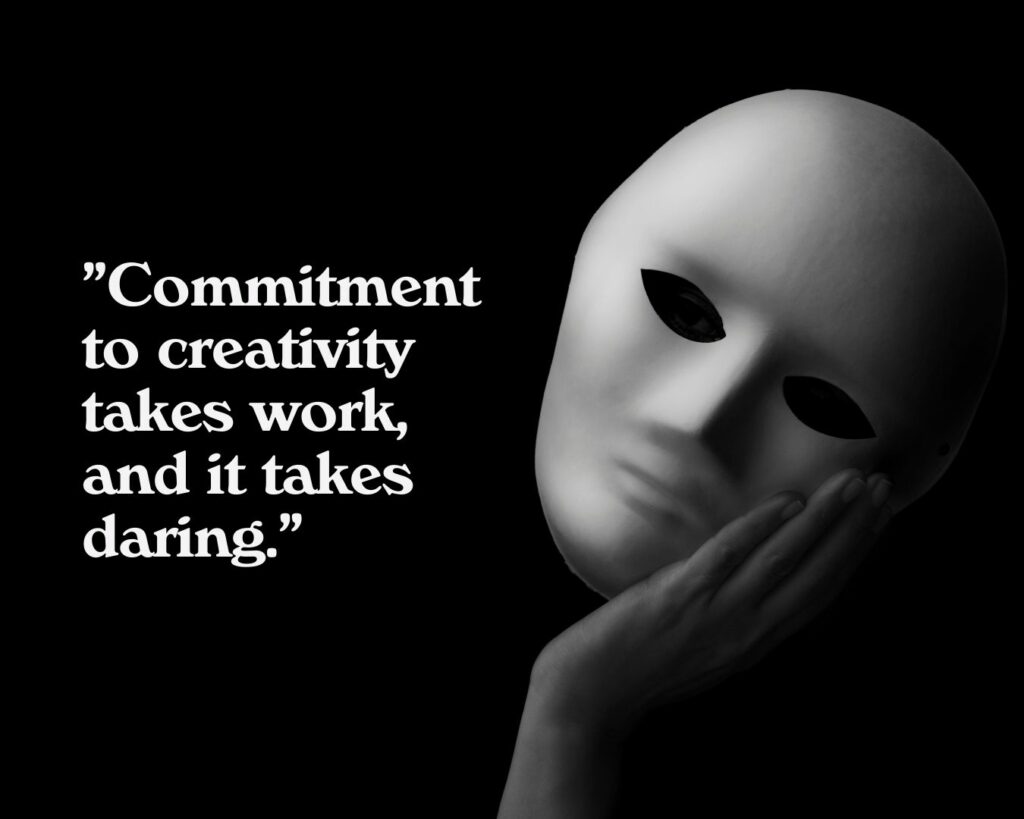
The brutalist cringe comedy of the moment was only replaced by a sensation of deep intrigue inside of me. What was up with this Gladiator-like scene? Why did these show-goers wait until the most bejeweled amongst them expressed their approval before they felt comfortable joining in the ovation?
We are fed the idea that social capital is everything and that it only trades in “cool points.”
As a result, many of us look to others for confirmation that it’s “okay” to like something. But this behavior is not just limited to kids’ reactions at a show. This ideology is often upheld by creatives ourselves. Indoctrinated into the church of cool early in life, we may spend our artistic careers seeking approval from the outside world. Subsequently, we become fearful of the quiet, transformative, and beautifully absurd world of creation. Because commitment to creativity takes work, and it takes daring. It does not provide us the immediate gratification of social validation. Instead, it requires us to look deeply within. And so, the irony is we begin to reject the very thing that could give us access to true joy: our own unique, freaky, sometimes messy, wonderfully imperfect, artistic process.
We associate cool with flawlessness and being close to god-like. But in reality, as Brown and many other researchers have noted, cool culture serves us apathy, judgment, and the shaming of ourselves and others.
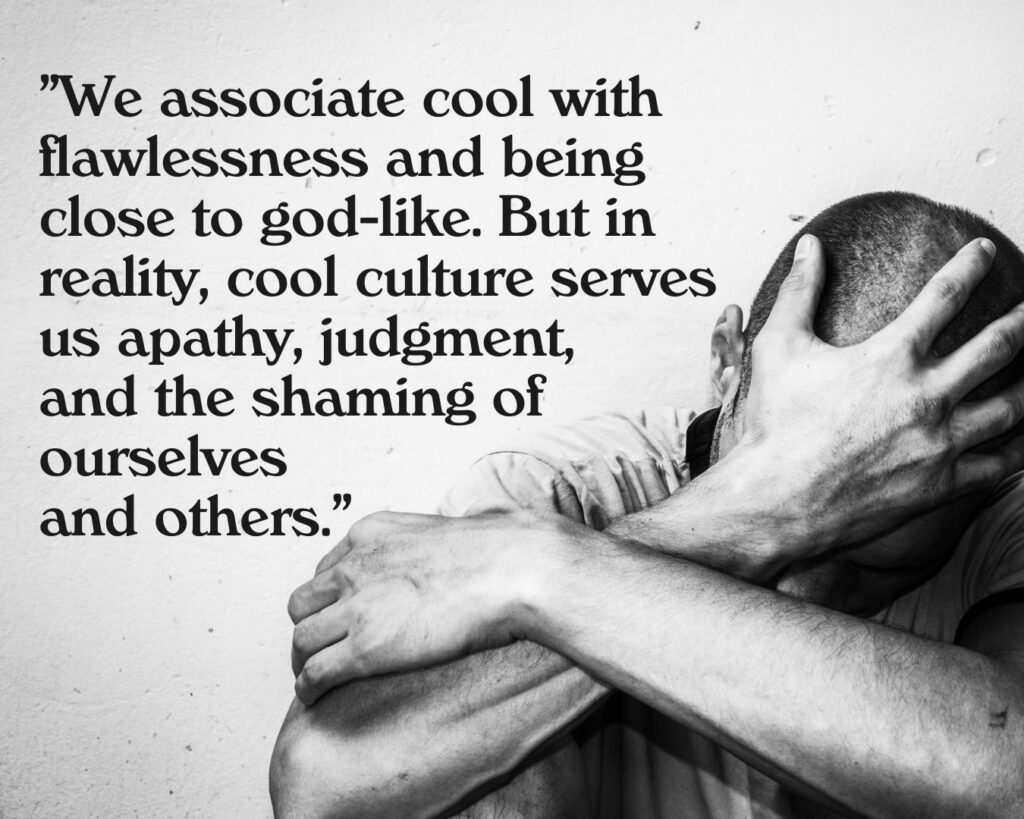
While we may laugh off the pressure to “be cool” as a juvenile experience that we outgrow as adults, sadly, the fear of being creatively “unhip” often stays through adulthood. In fact, one of the most significant obstacles my clients face is this type of self-shaming. For example, one client once said, “I’m afraid to write different music because I’m scared of what people will think.” Another once stated, “I don’t think I’m cool enough to pull off this art thing.”
The culture of cool is dangerous to artists and musicians (and those who long to be) because it discourages us from being bold, taking risks, and trying out new stuff. Instead of rocking our eccentricities, we look over our shoulders to ensure we’re not being “too weird.” It also prevents empathy, connection, transcendence. We don’t trust in our own power and become spiteful of others we perceive as having less inhibited creative magic.
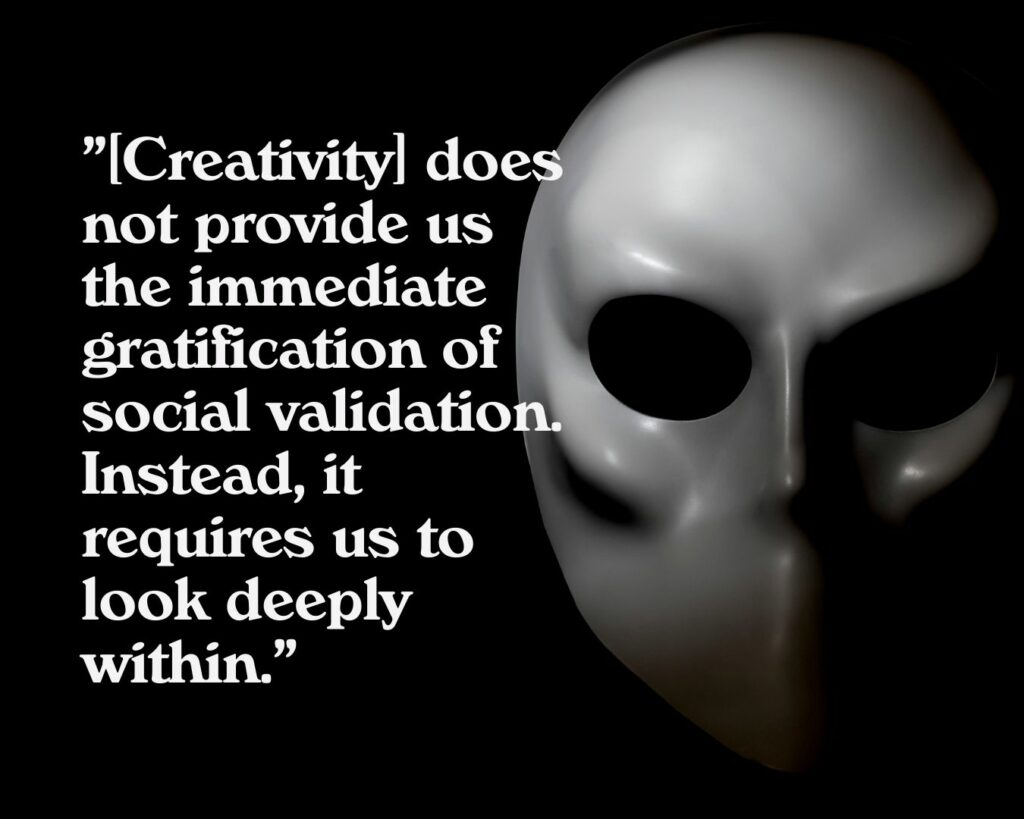
I think about those folks in that audience, many of whom were young artists and musicians themselves. Sometimes I wonder how many of them deferred their more wild, creative dreams to experience the tepid but ultimately safe waters of social acceptance. And before you get spicy with me, “cool” is not just an LA phenomenon. As a musician who’s traveled worldwide, I can assure you that “cool culture” has unfortunately metastasized globally.
So how do we confront that “cool guy” voice in our heads that constantly tries to reign us in?
First, remember that caring less about what other people think, in fact, does mean you run the risk of being perceived as “uncool.” People will see you, and they may judge. But above all, you invite the possibility of creative breakthroughs you never thought possible. And hey, you may even inspire others to castoff off the agony of cool in the process.
Taking small steps towards what you want will help you eventually realize the only limits you have are the ones you set for yourself. Cliché? Yeah, maybe. Is it worth it? Hell yeah. That’s the real cool.


